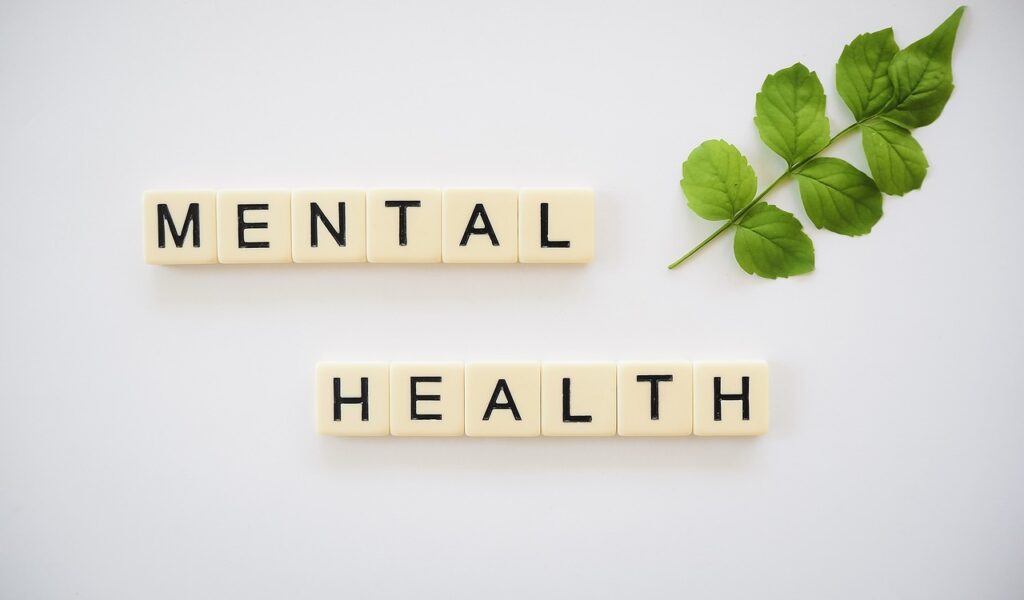Mental Health Myths Everyone Should Know

Have you ever seen a “mad” person on the streets? And when I say mad, I don’t mean angry or just deranged; I mean someone who stays near refuse dumps and walks so much he would give the children of Israel a run for their “promised land.” Well, the first thought that often crosses our mind is that they did money rituals or slept with a powerful native doctor’s wife. Well, you can’t really blame me for my Nollywood movie background, and while these things probably do happen, many times, the outrageous backstories we give to people with mental illness are creations of our highly primed minds. With that said, many of the myths and fictitious ideas we have about mental health are largely untrue, and they often have negative impacts too. So today, let’s look at five common myths and misconceptions about mental health and their true facts.
Myth #1: You don’t need mental health care if you are not going through a mental health crisis
This myth is so common it’s scary. It becomes all the more difficult when we recognize that many people think this way about their physical health, and it becomes no surprise why they would think the same about their mental health.
Fact: You should check your mental health to see whether or not there are evident indications of an issue
The simple truth about your mental health is that just like every part of your existence, proper care can reduce the risks of deterioration. Occasional check-ups with a psychologist should be scheduled to ensure peak mental condition.
Myth #2: All mental health issues are linked to spiritual problems

The story of many mentally ill folks starts awfully similarly in Nollywood movies. A person offends another who has spiritual backing, then plagues the other with madness, or a woman confesses to evil deeds, and she runs mad soon afterward. While these scenarios might have some elements of truth to them, many psychological and mental diagnoses have no spiritual roots.
Fact: Mental conditions are not always connected to spiritual causes
Parents who blame their children’s depression on the child not being spiritually up and doing might be ignoring relevant facts such as abuse, overwork, etc. A variety of factors influence a person’s mental health. Hence, strictly choosing spiritual answers over medical and psychological ones could worsen the problem.
Myth #3 Children do not have mental health or mental health issues
As shocking as this myth sounds, it is quite popular. Many adults believe that children are too young for their emotions to count. There is often the presumption that because children do not have agency, they do not have emotions. This is reflected in how many children are treated no better than objects in many scenarios without considering the implications to their mental health and well-being.
Fact: Children do have mental health and are susceptible to mental health issues
In countries with more reliable data collation, there is enough proof of children suffering from mental health challenges. In fact, a survey as far back as 2005 showed that 50% of mental health problems are established by age 14 and 75% by age 24, meaning between the ages of 0 and 14, about 50% of mental issues a person will face throughout the course of their lives would have been established. Parents ought not to treat their wards as objects but as people. Children need all the care, affirmation, and love to help them grow into healthy and fully functional adults.
Myth #4: Listening to a particular genre or type of music is a sign of depression

We all know that one friend always listens to “break up” songs for fun. The same friend likely also listens to emo music and weird-sounding music. The suspicion of depression is usually very strong against such fellows. Their parents have probably called them several times for prayer meetings and recitations from their holy book, and they have also reached out to you to advise your friend.
Facts: the facts in this scenario are dicey
While music can indeed be a contributing factor to depression, there are other factors to be considered before jumping to a conclusion. Listening to sad or moody songs does not mean someone is depressed. The studies on this have produced various results, with some people actually believing that sad music during depressing times can actually be a good thing, although they also conclude that results might vary for different people. Many also acknowledge that if the person listening actually finds that the music makes them feel worse afterwards, they shouldn’t indulge in it.
Myth #5 Claiming to be depressed is just a cheap escape for lazy people
Now, this is a claim that older people actually use a lot, and like the previous myth, it does have some elements of truth to it, but it dwells more in the realms of myth than reality.
Fact: Many people who claim to be depressed are going through a level of mental health challenges
In truth, not all who claim to be depressed are depressed. Ideally, a proper primary care doctor, psychiatrist, or psychologist should be involved in diagnosing a person for depression, but many young people self-diagnose, and this can make their claims seem untrue even when they are true. It should be noted that when some people self-diagnose, they might exacerbate the issue they are facing, which often indicates there is an actual mental health challenge not being attended to.
In conclusion
What measures must be taken to address these myths and more? Society as a whole is more likely to understand the importance of mental health, show compassion for people who struggle, and practice self-care when more information is made available on mental health. To achieve this, we must prioritize comprehensive mental health education in schools and communities. Public awareness campaigns, open conversations, and accessible resources can help debunk misconceptions and normalize seeking help. Encouraging policymakers to integrate mental health into public health agendas and ensuring support systems are in place for those in need will foster a more empathetic and informed society.
Featured Image by Total Shape from Pixabay
Image 1 by Thomas from Pixabay
Image 2 by DatWuschel from Pixabay

Jesupelumi Akintade
Is a skilled SEO content writer and lawyer with a talent for crafting engaging, authoritative content for SaaS brands and small businesses. Beyond advocating for his clients' rights and developing content strategies, he enjoys anime, fiction, poetry, and exploring church history. Passionate about enhancing the well-being of those around him, A. J. Victor is particularly interested in mental health and its impact on quality of life.